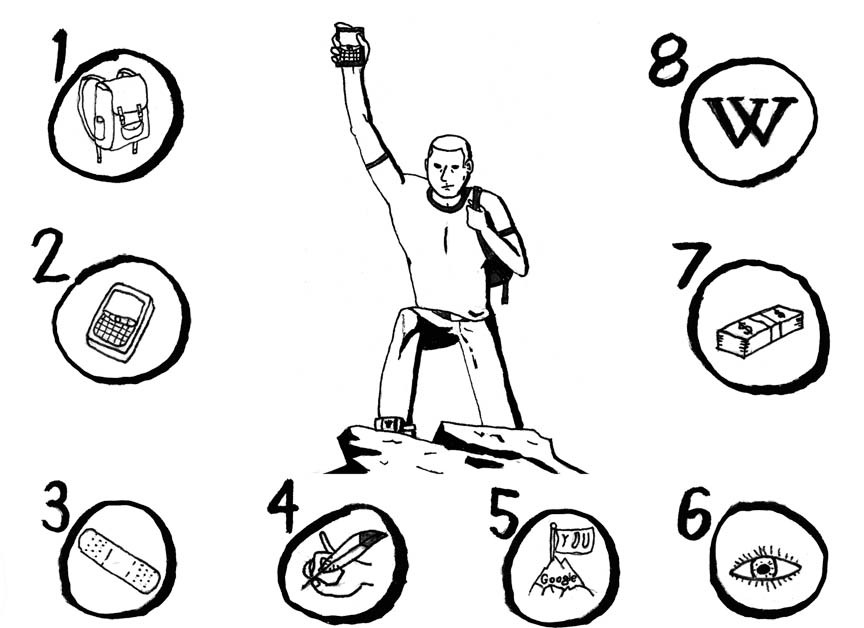Journalism in the 21c
Scoop Twitter and Outfriend Facebook: Eight Tips
Journalism was in a state of change, a new and disruptive technology had arrived on the scene and the existing powers were doing all they could to hold on.
While it might sound like the Twitter-mad United States during the great recession, welcome to Europe in 1447 as the calligraphy industry fought off Gutenberg and his newfangled press.
The invention that has lent its name to the field of journalism was perhaps the most disruptive in the history of the written word; however, the Internet has now put a press in every house and in nearly every pocket.
The consequences will be nearly as far reaching.
A time of disruption has returned to the world of the printed word and daily newspapers are now the industry on the defensive. They have all but conceded defeat.
With the ubiquity of the printing press, journalists must now learn not to write more, but to write better, faster and build communities that hang off their every word.
Here are a few tips for journalism in the 21st century.- Learn to pack light*
You won’t have an office to rely on, a taxi budget to carry you around or a company card to cover your meals. You won’t be alone, but your support network will no longer be financial or material, it will be digital.
Everything you need to carry will have to be in a backpack or in your pockets. Also, the journalistic dress code might need some relaxing. No need for three-piece suits like those found at Le Journal de Montreal.- Learn to be smart*
It might seem like common sense, but journalists now need a smart phone that keeps them perpetually tethered to the Internet. Tweets build a community and hype for what you are doing, as well as keeping you abreast of what is going on around you.
Stories are now built, they aren’t just released when you finish your first edit. You are now constructing a narrative with picture uploads, tweets and geotags.- Learn to be safe*
Now that you don’t have the power of a multinational corporation at your back or a media property that has instant name recognition, you will need to think safe. Don’t worry, this was going to happen either way. At the G20 protests this summer it was quickly understood that the police treated internationally accredited media no different from protestors.
Both were shot at and beaten without provocation.
Learn first aid, you might need to use it on people around you or on yourself. Rubber bullets don’t discriminate.- Learn to have a voice*
The gulf between popular media and the paper of record has narrowed to the point of near irrelevance. Everyone is using more commentary, more pictures and more colour. What you need to do is put that colour into your words. Cultivate a voice and an opinion that guides people through your pieces.
No one will come back to you for the standard facts, but they will for solid thoughts and a different look at the world.- Learn to be on top*
Google News and your readers have done your job for you.
Back in the day, editors had to decide what order stories came in. The choices of every person on the Internet and what they choose to read, now decides that order.
Make your story the most interesting and break the big stories by being in the right place—follow Tweets and blogs to know where that is. The big papers are just a collection of people, they don’t have a monopoly on the big story. They are often the last to find out.
If you build your contacts and community, the playing field won’t just be flatter—it may tilt in your favour.- Learn visuals*
The look of things is more important than ever. Graphics and splashy colours can work on the Internet in a way that they
never worked on paper. Learn to take great pictures, learn to make graphics and create a website that stands out.
- Learn business*
Daily newspapers and free dailys don’t work in the same way as online media. Will members, ads or a benefactor support you? Learn to leverage your stories and your impact to get people investing in your site with time and money.
Learn simple business. One great story can get you the ads to keep you going for three months. You can live from scoop to scoop.- Learn everything*
You are the news. Remember to learn everything you can about everything you are covering.
Read everyday, write everyday. Never stop being interested so that when you write stories and features you can draw on the widest body of knowledge and create pieces that inform. Be the first to take a point of view, be critical and be factual.
Welcome to the 21st century of journalism. It’s not nearly as scary as it looks.
This article originally appeared in Volume 31, Issue 10, published October 19, 2010.




_1_600_375_90_s_c1.jpg)


